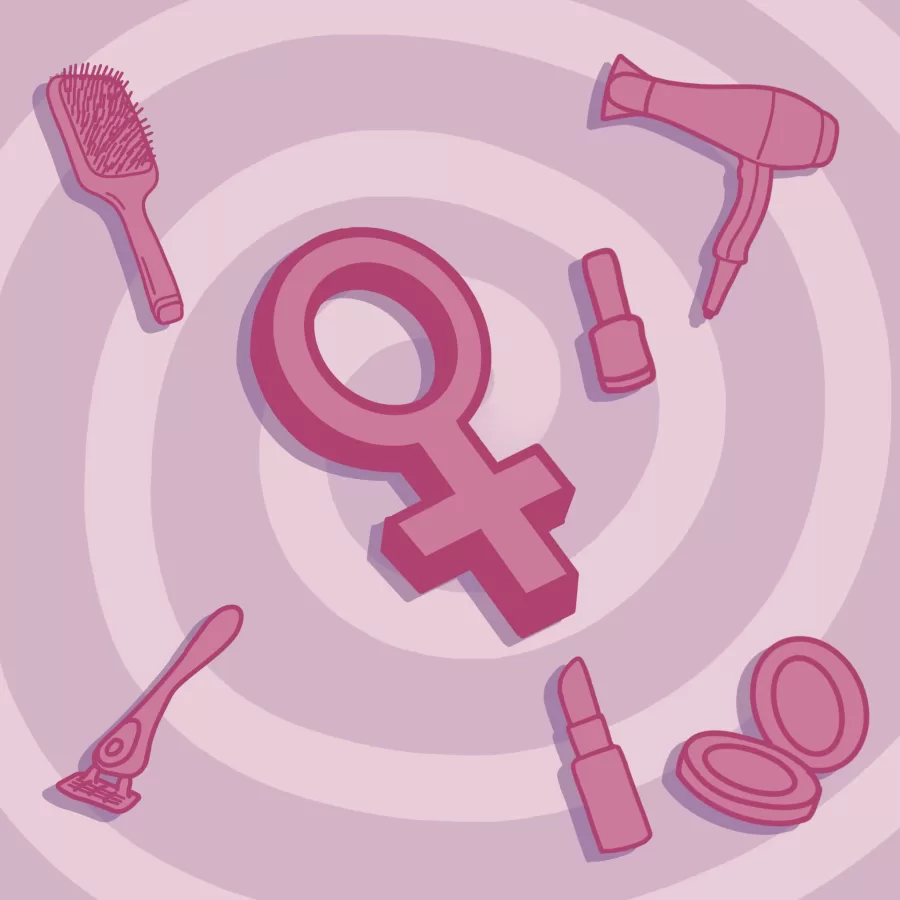Opinion | ‘Choice feminism’ ignores institutional issues, prevents change
January 29, 2023
Our modern understanding of feminism has created many different branches of ideology when it comes to gender equality. One of the most popular branches of third-wave feminism is called choice feminism, which is the idea that any choice an individual woman makes is inherently feminist.
Choice feminists believe that the decisions of women who decide to engage with beauty standards, like shaving or wearing makeup, are just as feminist as women who forgo those standards because they had the ability to choose for themselves. While this philosophy sounds great, it can have very harmful effects and set feminism back.
Women cannot claim that they are feminists simply for making their own choices. The intention of feminism is not to invoke self-satisfaction and complacency within individual women. To truly participate in the movement, feminists must challenge institutionalized inequality for all types of women.
The harsh reality is that it is nearly impossible to make a free choice in a society heavily influenced by the patriarchy. Choosing to shave your legs will never be the liberating, anti-patriarchy decision that it is made out to be by choice feminists because the pressure for women to shave comes directly from the patriarchy. Although many women shave and wear makeup so they can feel more confident, it is critical to analyze where these perceptions come from.
The confidence that comes from following beauty standards is rooted in the patriarchy that has convinced women for years that they need to buy products and alter their appearances to be beautiful. While it is unreasonable to expect every woman to dismantle these ingrained ideas in an instant, an understanding of how their actions are not inherently feminist is essential for progress.
Get The Daily Illini in your inbox!
Another problem with choice feminism is that it operates under the assumption that all women are afforded the luxury of choice when in reality, only a small percentage of women have that privilege. Choices such as remaining unshaven can be applauded when you are a white woman who has not been masculinized her whole life for having body hair. That same treatment is not applied to women of color.
This inequality in choice freedom does not apply only to those who benefit from Eurocentric beauty standards. Women of color are often held to higher standards in appearance and how they present themselves. If a Black woman or woman of color makes a choice that goes against societal standards and expectations, they may face repercussions that a white woman would not.
Women of color often experience ridicule and judgment for making the same decisions as white women. They might lose opportunities or face disrespect in school and the workplace for not appearing professional.
People also like to use the argument of choice feminism when discussing and glamorizing sex work. While better treatment for sex workers is necessary, it is counterintuitive to promote and encourage the sex industry under the pretense of choice.
The sex industry was — and continues to be — fueled by the patriarchy and female sexualization. Sex workers are often forced into the industry to support themselves or their families. Other times, they are exploited and controlled from within the industry. In both cases, women are stripped of choice.
Women do not choose to become prostitutes because they are looking for empowerment through sexuality, and spreading the narrative that this work is empowering to women is dangerous.
That being said, no one has the right to shame women for the choices they make about their lives and bodies. If a woman wants to strip, shave or wear makeup, that is her choice as an individual. However, it is important to make the distinction between individual autonomy and feminist action before people start complacently thinking their personal choices benefit women as a whole.
Vidhi is a sophomore in LAS.







